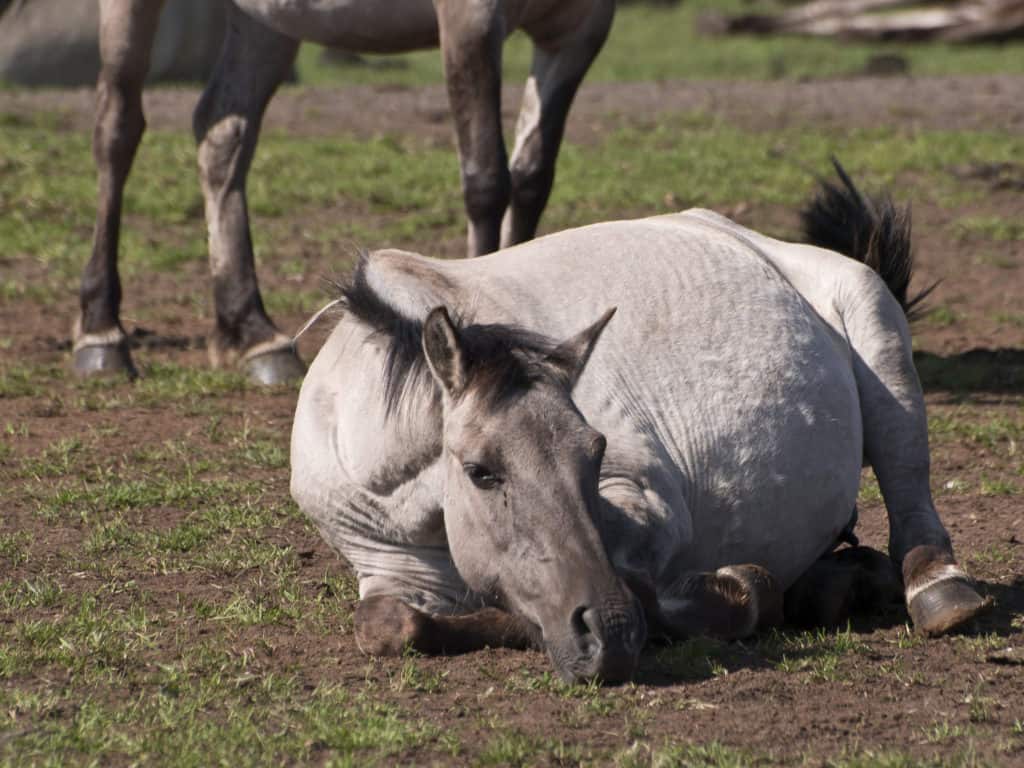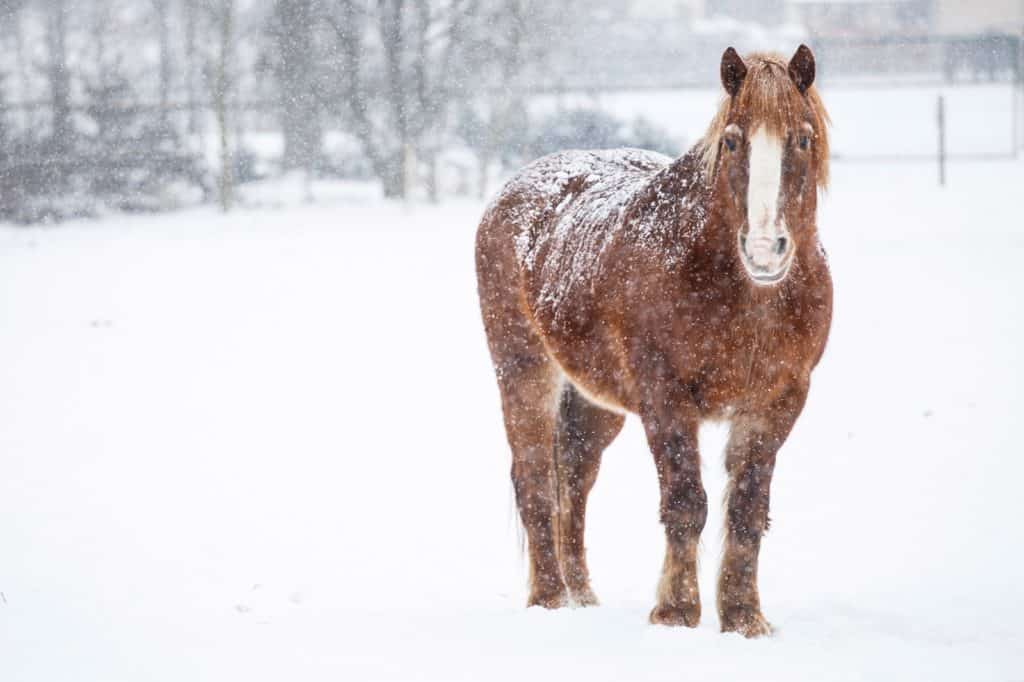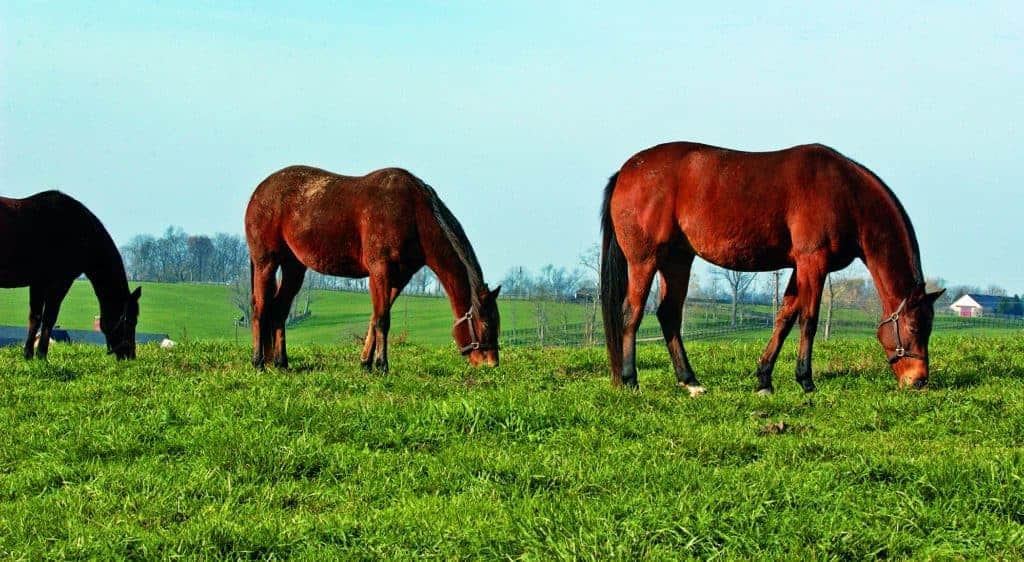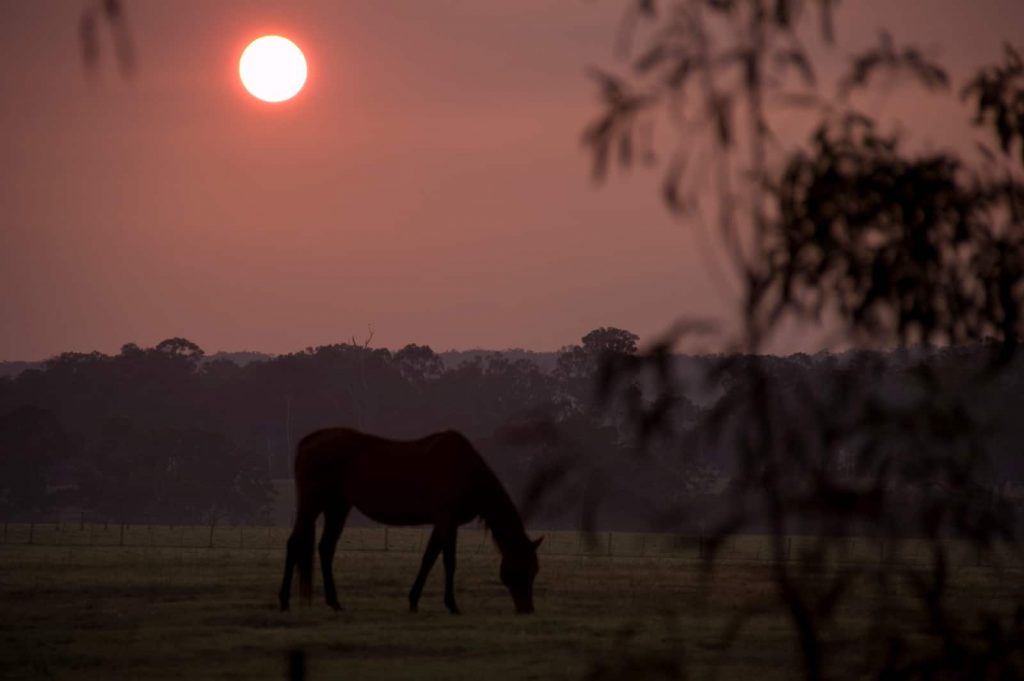
Proper feeding practices for foals, adult horses, and older horses

Taking these steps might help protect your mare and her foal.

Before adding fat to your horse’s diet to improve his coat, be sure he’s on a balanced diet and that you’re grooming him regularly.

An equine nutritionist answers common questions about beet pulp, which has long been a mainstay in many feed rooms for horses, especially during the winter months.

Cold weather affects older horses more than it does their younger companions. Learn how to keep your senior comfortable and healthy during cold weather.

Decipher fact vs. fiction when it comes to the complicated world of feeding horses.

Follow these 3 steps to feed your horses efficiently and potentially help reduce your feed bill.

Water is an essential nutrient for horses. Find out why it’s important to keep your horses’ water sources clean and explore common challenges horse owners face.

Find out how to design an affordable feeding program while still meeting your horse’s nutritional requirements.

An equine nutritionist breaks down what’s in a grain-free feed and how you might increase calories for a performance horse consuming a grain-free diet.

Here’s a look at what hair analysis and bloodwork each can tell you about your horse’s nutritional health.

This feed program appeared to improve one horse’s weight, skin, and coat and might have helped him avert gastric issues during a stressful situation.

A nutrition expert offers advice for ensuring free-fed horses don’t overeat hay.

Ditch traditional bran mashes (and the issues they can cause) for forage feeding to keep horses warm.

If your broodmare is overweight and/or has metabolic problems, her foal could be at risk. Here’s how you can keep both horses safe during pregnancy.

One equine nutritionist offers tips and asks for your input on dealing with ice in horse watering tanks.

If your horse is living in an area with poor air quality, he might benefit from wet or steamed hay and omega-3 supplementation.
Stay on top of the most recent Horse Health news with
"*" indicates required fields